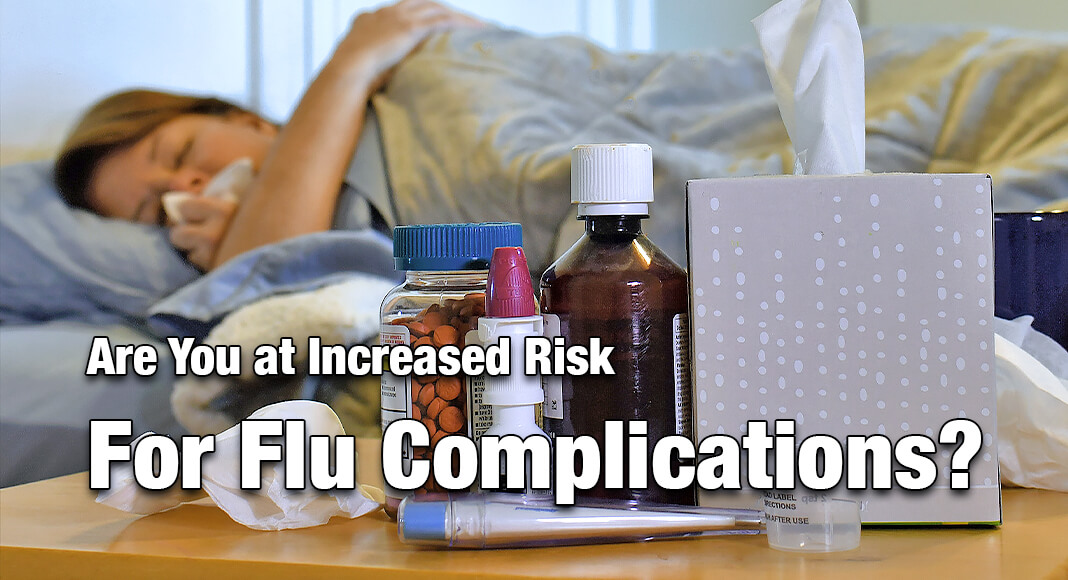
Mega Doctor News
WHAT TO KNOW
Some people are at higher risk of developing serious complications from flu. If you are at higher risk, flu vaccination is especially important. When you get vaccinated, you reduce your risk of getting sick with flu and possibly being hospitalized or dying from flu. CDC recommends prompt flu antiviral treatment for people at higher risk of serious flu complications who have flu infection or suspected flu infection.
| People at increased risk |
| Adults 65 years and older |
| Children younger than 2 years old1 |
| People with asthma |
| People with chronic lung disease (such as chronic obstructive pulmonary disease [COPD] and cystic fibrosis) |
| People with neurologic and neurodevelopment conditions |
| People with blood disorders (such as sickle cell disease) |
| People with endocrine disorders (such as diabetes mellitus) |
| People with heart disease (such as congenital heart disease, congestive heart failure and coronary artery disease) |
| People with kidney disorders |
| People with liver disorders |
| People with metabolic disorders (such as inherited metabolic disorders and mitochondrial disorders) |
| People with a body mass index (BMI) of 40 kg/m2 or higher |
| People younger than 19 years old on long-term aspirin- or salicylate-containing medications. |
| People with a weakened immune system due to disease (such as people with HIV or AIDS, or some cancers such as leukemia) or medications (such as those receiving chemotherapy or radiation treatment for cancer, or persons with chronic conditions requiring chronic corticosteroids or other drugs that suppress the immune system) |
| People who have had a stroke |
| People with certain disabilities—especially those who may have trouble with muscle function, lung function, or difficulty coughing, swallowing, or clearing fluids from their airways. |
| Other people at higher risk from flu: |
| Pregnant people and people up to 2 weeks after the end of pregnancy |
| People who live in nursing homes and other long-term care facilities |
| People from certain racial and ethnic minority groups are at increased risk for hospitalization with flu, including non-Hispanic Black persons, Hispanic or Latino persons, and American Indian or Alaska Native persons |
| 1 Although all children younger than 5 years old are considered at higher risk of serious flu complications, the highest risk is for those younger than 2 years old, with the highest hospitalization and death rates among infants younger than 6 months old. |
Flu and people with chronic conditions
Adults with certain chronic conditions are at higher risk of developing serious complications from flu.
In fact, during recent flu seasons, 9 out of 10 people hospitalized with flu had at least one underlying health condition – that’s why getting an annual flu vaccine is especially important for people with certain chronic health conditions
A flu vaccine reduces the risk of getting sick with flu. For people with certain chronic health conditions a flu vaccine has been shown to reduce the risk of flu-related worsening of chronic conditions and prevent flu-associated hospitalization.
Flu Vaccination is the Best Protection
The best way to prevent flu and its potentially serious complications is for everyone 6 months and older to get a flu vaccine every year. It is especially important for people who are at higher risk of developing serious flu complications to be vaccinated each year.
Other Preventive Actions
In addition to getting a flu vaccine, people with asthma should take the same everyday preventive actions CDC recommends for everyone, including avoiding people who are sick, covering coughs, and washing hands often. This also can include taking steps for cleaner air and hygiene practices like cleaning frequently touched surfaces. More information is available about core and additional prevention strategies.
Treatment
CDC recommends early flu antiviral treatment for people who have flu or suspected flu who are at higher risk of serious flu complications.
Keep Reading:Treating Flu with Antiviral Drugs
- Flu Information for Parents with Young Children. Advice for parents who want to keep their children healthy.
- Influenza Vaccination Information for Health Care Workers. Information on the importance of flu vaccination for people who work in health care.
- Information for Health Professionals. Information about vaccination, infection control, prevention, treatment, and diagnosis of seasonal flu for public health and health care professionals.
Information Source: CDC









